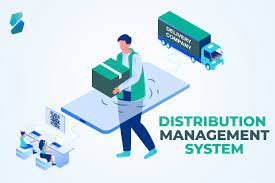Why FMCG Companies Should Invest in Advanced Distribution Software
fmcg distribution software

The fast-moving consumer goods (FMCG) sector is one of the most dynamic and competitive industries in the world. From food and beverages to personal care and household items, FMCG companies handle vast product portfolios, tight margins, and ever-evolving consumer expectations. In such a fast-paced environment, efficiency and agility are crucial for staying ahead. One of the most effective ways to achieve this is by investing in advanced distribution software.
This article explores why FMCG companies should prioritize distribution technology, how it benefits operations, and why it’s becoming a necessity rather than a luxury in today’s marketplace.
1. Streamlining Supply Chain Operations
The FMCG industry thrives on speed. Products move from manufacturers to distributors, retailers, and finally to consumers at lightning speed. Any delays or inefficiencies can disrupt the entire process and damage profitability.
Advanced distribution software helps companies streamline supply chain operations by integrating processes like:
-
Inventory management: Real-time stock visibility prevents understocking or overstocking.
-
Order tracking: Automated order processing reduces human errors.
-
Route optimization: Logistics modules ensure products are delivered quickly and cost-effectively.
By ensuring better synchronization across the supply chain, companies can improve delivery times and cut down on operational bottlenecks.
2. Enhancing Real-Time Visibility
Traditional distribution systems often suffer from a lack of transparency. Managers may not know how much inventory is available, where delays are happening, or which products are moving faster.
With advanced fmcg distribution software, businesses gain real-time visibility into every stage of the distribution cycle. From monitoring stock levels at warehouses to tracking delivery vehicles on the road, decision-makers have access to accurate, up-to-date information.
This transparency helps businesses:
-
Predict demand more accurately.
-
Identify slow-moving products before they become dead stock.
-
Ensure compliance with delivery deadlines.
When managers can see the big picture, they make smarter, data-driven decisions.
3. Reducing Costs and Improving Profit Margins
Margins in FMCG are notoriously tight. Even small inefficiencies in distribution—like fuel wastage, delays, or inaccurate demand forecasting—can eat into profits.
Advanced distribution software uses automation and data analytics to identify cost-saving opportunities. For example:
-
Route optimization reduces fuel consumption and driver time.
-
Demand forecasting ensures that only the right amount of stock is produced and distributed.
-
Automated billing and invoicing minimize administrative costs.
By reducing waste and improving efficiency, companies can protect and even grow their margins in a highly competitive industry.
4. Improving Customer Satisfaction
Consumers today expect speed, reliability, and convenience. Retailers also demand timely replenishments to keep up with consumer needs. Any hiccup in the distribution chain can damage customer trust.
Advanced distribution software helps FMCG companies meet and exceed customer expectations by ensuring:
-
On-time deliveries.
-
Accurate order fulfillment.
-
Transparent communication on product availability.
For example, if a retailer can receive real-time updates about when their stock will arrive, it strengthens trust in the brand. Ultimately, higher customer satisfaction leads to stronger relationships and brand loyalty.
5. Leveraging Data and Analytics
One of the biggest advantages of modern FMCG distribution software is its ability to collect and analyze large volumes of data. With analytics tools, companies can uncover insights such as:
-
Which regions or markets have the highest demand.
-
Which products generate the most revenue.
-
Seasonal patterns that affect sales.
This data-driven approach helps FMCG companies fine-tune their strategies, target high-performing areas, and allocate resources more effectively. In today’s digital-first market, data is the new competitive advantage, and distribution software puts that power in the hands of decision-makers.
6. Supporting Scalability and Growth
As FMCG companies expand into new markets or launch new product lines, managing distribution becomes increasingly complex. Traditional systems struggle to scale up, leading to errors and inefficiencies.
Advanced distribution software is designed with scalability in mind. Whether a company is expanding its warehouse network, onboarding new retailers, or increasing delivery routes, the software adapts seamlessly.
This flexibility ensures that growth doesn’t come at the cost of efficiency. Instead, businesses can expand confidently while maintaining smooth operations.
7. Ensuring Compliance and Traceability
Regulations in the FMCG industry are strict, especially for food, beverages, and pharmaceuticals. Companies need to ensure that products are stored, transported, and delivered under proper conditions.
Advanced distribution software enables end-to-end traceability by tracking every product from the warehouse to the retail shelf. This not only ensures compliance with regulations but also builds consumer trust by making supply chains more transparent.
In cases of recalls or quality concerns, traceability features allow companies to act swiftly, reducing reputational damage.
8. Staying Competitive in a Digital Age
The FMCG market is evolving rapidly, with e-commerce, direct-to-consumer (D2C) channels, and digital-first retailers changing the landscape. Traditional distribution systems cannot keep up with these modern demands.
Investing in advanced distribution software ensures that FMCG companies remain competitive by:
-
Enabling faster adaptation to new sales channels.
-
Supporting omnichannel distribution strategies.
-
Allowing seamless integration with retail platforms and ERP systems.
In short, it gives companies the agility they need to thrive in a digital-driven world.
Conclusion
For FMCG companies, distribution is the heartbeat of success. Without efficient, transparent, and scalable systems, even the best products can fail to reach customers effectively. Advanced distribution software is not just a tool—it is a strategic investment that empowers businesses to cut costs, enhance visibility, ensure compliance, and most importantly, delight customers.
As competition intensifies and consumer expectations rise, investing in distribution technology is no longer optional. It is the key to driving efficiency, profitability, and sustainable growth in the FMCG sector.




